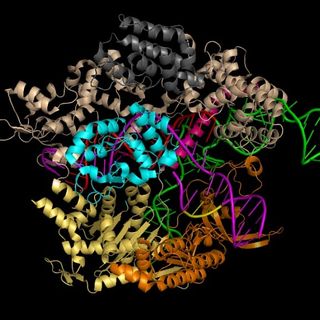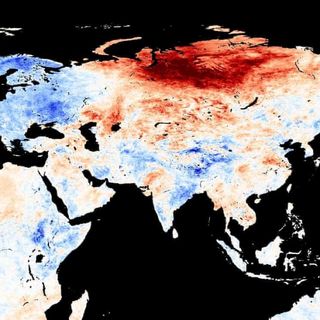As scientists, societies, and governments scramble to put out fires — both literal and metaphorical — arising out of the climate crisis, it is imperative we tackle the underlying causes: the pursuit of wealth and overconsumption. In a report published in Nature Communications, a group of environmental scientists, engineers, physicists, and economists warn people about limitless growth and why that should no longer be considered a beacon of progress for the world.
The problem lies in how we’ve structured society, the researchers write. Under capitalism, economic growth is prioritized, which requires a perpetually competitive workforce to keep up with rising productivity levels. This fuels the need to replace time-intensive labor with energy-intensive alternatives that harm the environment but keeps up the cycle of never-ending supply and demand for goods we are constantly creating the need for.
“The key conclusion from our review is that we cannot rely on technology alone to solve existential environmental problems — like climate change, biodiversity loss and pollution — but that we also have to change our affluent lifestyles and reduce overconsumption, in combination with structural change,” lead author Tommy Wiedmann, from the University of South Wales, said in a statement.
Although lifestyle changes on the individual level have been touted as crucial for tackling the climate crisis, environmental scientists place the onus on the top 1% of corporations in the world, which are exploiting the planet with abandon. The world’s bottom 10% of income earners are responsible for 3-5% of total environmental impact, while the top 10% are responsible for 25-43% of the total impact, the report finds.
According to the researchers, the consumption of the world’s affluent citizens is a key driver for environmental destruction. Wealth accumulation increases people’s purchasing power, leading to more consumption and, therefore, a disproportionate impact on environmental degradation.
“To protect ourselves from the worsening climate crisis, we must reduce inequality and challenge the notion that riches, and those who possess them, are inherently good,” co-author Julia Steinberger, professor of ecological economics at the University of Leeds, says in a statement.
Related on The Swaddle:
Covid19 Has Made Us More Vulnerable to Climate Change. What Now?
This top 10% of income earners impact the environment in three ways — “directly through high consumption, as members of powerful factions of the capitalist class and through driving consumption norms across the population.” In order to tackle this problem, it’s not enough to just green our consumption habits; they need to be reduced, drastically, and fast. There is a need to cut superfluous consumption — consumption that is not meant for satisfying needs but for fulfilling ever-increasing wants. This includes scrapping societal aspirations for overly large homes, oversized vehicles, and work and leisure patterns that involve environmentally harmful practices such as non-essential flying. This, however, needs to happen in tandem with making more ecologically sustainable alternatives available and accessible to people, even if it means halting economic progress as we’ve understood it so far, the report adds.
“We have to get away from our obsession with economic growth – we really need to start managing our economies in a way that protects our climate and natural resources, even if this means less, no, or even negative growth,” Wiedmann says.




